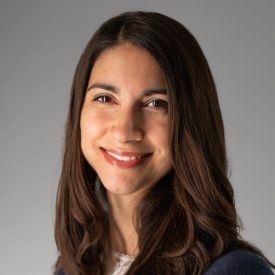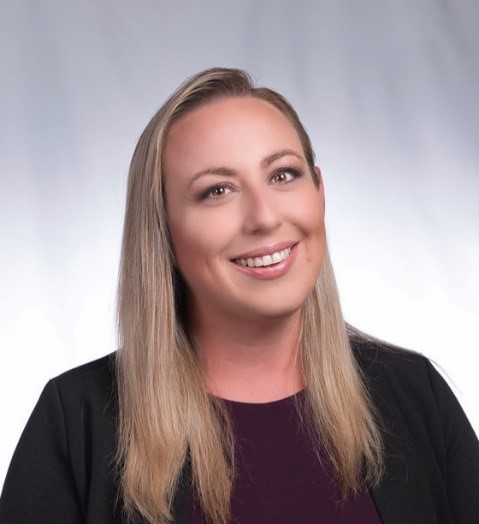For Campus Inventors & Entrepreneurs
Are you a UT researcher, staff member, or student with an idea or technology you think has potential? You’ve come to the right place. Discovery to Impact can help.
Disclose an Invention
During your research, you may have discovered a potentially valuable discovery. Presenting, publishing, or speaking about your work before UT files a patent application can greatly reduce the value of the intellectual property, which could hamper efforts to move your invention into products and services that benefit people. Discovery to Impact can help take you through the process. The best time to disclose an invention to Discovery to Impact is often just as you start preparing your first public (non-confidential or academic) disclosure. This gives us time to properly evaluate your invention and consider filing a patent application at the same time as you prepare your publication.
Authorship Copyright Disclosure
Life Sciences Invention Disclosure
Materials Invention Disclosure
Physical Sciences and Engineering Invention Disclosure
Software Copyright Disclosure
Inventors, email your completed disclosures to ip@discoveries.utexas.edu.
The Navigator
The Navigator connects UT researchers and students to more than 130 innovation and entrepreneurship resources across campus by centralizing them into one user-friendly search platform. From funding and mentoring to education and intellectual property support, use the Navigator to find what you need, quickly and easily.
51,991
students
13,067
staff
3,919
faculty
130+
resources


Entrepreneur’s Guide
A handbook for starting a business and leveraging funding opportunities and startup support services at UT Austin.
Discovery to Impact Funding Opportunities
Proof of Concept (POC) Awards
These provide competitive funding for faculty members or permanent researchers with principal investigator (PI) status to demonstrate the feasibility of their innovations to accelerate the process towards commercialization.
There are two different award types:
Texas Proof of Concept Awards
- Maximum value of $25,000 in POC funds
- No matching requirement
Texas+ Proof of Concept Awards
- Includes matching component
- Maximum value of $125,000 in POC funds
- Requires the applicant to secure matching funds from an industry partner, to be matched 1:1 by POC funds
Applicants from any UT college, school, or unit may apply for one or both awards, in any order. If a UT researcher wins both a Texas and Texas+ POC Award, total funding is limited to $125,000 for a specific innovation. Applicants can apply for multiple awards if they are for unique projects, and applicants can receive a maximum of two POC Awards per year.
Rolling Applications with Review Cycles Every Three Months
Click here for the Request for Applications or email Matt Sorenson, Innovation Program Manager, for more information.
SBIR/STTR
The federal Small Business Innovation Research (SBIR) and Small Business Technology Transfer (STTR) programs are non-dilutive grants referred to collectively as “America’s Seed Fund.” These programs provide key early-stage funding to companies developing technologies aligned with the research objectives of the federal funding agencies. See below for ways Discover to Impact can help you prepare and fund your work.
Bridge to Phase II Support Grant
These UT awards assist federal SBIR/STTR Phase I awardees who are advancing UT Austin technologies to make their SBIR/STTR Phase II proposals more competitive. Awards are reviewed quarterly and are up to $30,000.
Application deadline: TBA
Click here for the Request for Applications or email Andrew Worden, Entrepreneurship Program Manager, for more information.
New to SBIR/STTR funding?
Learn more about the federal program and grants offered directly through the U.S. government.
SBIR Sprint Day | In-person Workshop
~Spring 2025. Check back for details.
Join Discovery to Impact for this ½ Day Sprint to jump start your proposal for America’s Seed Fund: SBIR/STTR. Choose a session for National Institutes of Health (NIH), National Science Foundation (NSF), or Department of Defense (DOD).
Registration is capped because this is an active, sprint style event in which each participant leaves with:
- A template for writing your Specific Aims (NIH) or Technical Objectives (NSF)
- 1:1 meeting with Consultant on your specific proposal
Agenda
With Megan Varnum, PhD
8:00a – 10:00a NIH Workshop – Specific Aims Clinic (capped at 15 participants)
Your Specific Aims page is the most important page in your NIH SBIR/STTR proposal. Join this clinic and discover how to craft the strongest possible Aims page to make the best impression on your reviewers. In this interactive 2-hour clinic our expert will review some NIH Specific Aims page examples and use actual reviewer feedback to develop a good Aims page. This clinic is designed for NIH applicants pursuing the January 5, 2024 NIH deadline and space is limited.
You’ll learn:
- Why the Aims page so important
- The key pieces of information reviewers look for
- How to use your Aims page to gauge program manager’s interest
- How to avoid common mistakes and pitfalls
10:00a – 11:00a Writing Sprint
A NIH Specific Aims writing template will be provided so you can work and ask questions while our expert floats the room.
11:00a – 12:00p 15-minute one-on-ones with our experts
With Monique Branham
9:00a – 11:00a DOD Workshop – How to Engage with DOD
Learn the goals and initiatives of DOD’s rebranded components. Our DOD expert will review DOD’s mission and provide an overview of all DOD components. AFWERX, SPARTN, SOFWERX, xTechsearch, etc… all have different focus, eligibility requirements and solicitation deadlines.
You’ll learn:
- Which components participate in the SBIR/STTR programs
- How the components differ
- How to find open BAA’s and deadlines
- Tips to be competitive and more!
11:00a – 12:00p 15-minute one-on-ones with our expert
12:00p – 1:00p 15-minute one-on-ones with our expert
With Megan Varnum, PhD
1:00p – 3:00p NSF Workshop – Technical Objectives (capped at 15 participants)
The NSF SBIR/STTR program expects you to come up with 1-3 clearly defined Technical Objectives related to product development for your Phase I application. This workshop (preferable to be a workshop vs just a webinar) will teach you the important differences between Technical Objectives versus tasks. We will also go through how to use data from market research and customer discovery to determine your quantitative metrics for success.
3:00p – 4:00p Writing Sprint
A NSF Technical Objectives template will be provided so you can work and ask questions while our expert floats the room.
4:00p – 5:00p 15-minute one-on-ones with our expert
About the Experts

Megan Varnum, PhD
Principal Consultant
NIH, NSF, and commercialization planning
Megan joined BBC Entrepreneurial Training & Consulting as a Principal Consultant in 2019 with a wealth of experience in leading biological technologies on the path to commercialization. As CEO of FibrosIX Inc., a Michigan company developing compounds for the treatment or prevention of fibrosis-related disorders, Megan was involved in all aspects of planning and operation of the company. This included writing an SBIR grant proposal, which was awarded from the National Cancer Institute. Her prior experience includes serving as an Entrepreneur in Residence for Michigan State University’s Spartan Innovations where she assisted MSU researchers in translating their technologies into startup businesses. While at MSU, she managed the launch of two startups and assisted in preparation of both NIH and NSF SBIR/STTR proposals. A former Research Associate of the Scripps Research Institute, Megan received a B.S degree from the University of Massachusetts Amherst and a PhD from Boston University.

Monique Branham
Principal Consultant
DOD and commercialization planning
Monique has 22 years of experience in the DOD and government sector. Monique joined the United States Air Force in 1999 in the Battle Management Command and Control field and has an M.B.A in Aviation from Embry Riddle Aeronautical University. While in the Air Force she served as a Quality Assurance personnel of government contracts and a Resource Management Officer. Monique transitioned her career from military to government Prime Contractor at Raytheon, capturing and managing DOD Command and Control Contracts. Monique moved to the Air Force Space and Missile System Center (SMC) and became the SBIR/STTR commercialization expert. Monique’s work was instrumental in finding leveraged funding from government, academic, and private sectors, as well as writing intricate transition management plans led to the successful commercialization of SBIR topics such as DSS, Roll-Out Solar Array, which is utilized on the International Space Station. Monique was able to garner leveraged funding for commercialization for over 20 SBIR topics in the highly regulated and risk averse space sector. She later became the Program Manager at SMC for SMC University, which provided educational classes to contractors and government personnel on acquisitions and contract management. Monique has received awards from SMC for Innovation and leadership. Monique has an honorable discharge from the United States Air Force.
Questions about this event can be directed to the Entrepreneurship Program Manager at Andrew.worden@austin.utexas.edu
Entrepreneurs-in-Residence (EIRs)
Fractional/part-time management services for early UT companies and startups
EIRs help create business plans, financing strategy, go-to-market strategy and more to accelerate company growth, attract external management, and establish the business foundation needed for the long-term viability of the company.
If you are interested in potentially working with an EIR, please complete this interest form.
Please note: Our EIRs are in high demand and submitting this interest form does not guarantee support from an EIR.
On-Demand Webinar Library
Interested in SBIR/STTR funding but not sure where to begin? Writing your proposal and looking for expert guidance? On-demand webinars about SBIR/STTR programs and agency proposal requirements are available to the UT Austin community at no cost through our collaboration with BBC Entrepreneurial Training & Consulting.
- View selection of webinars available here.
- To receive your coupon code to watch for free, register here.
Webinars run approximately 45-minutes or less. Once you access a webinar, it will be available to view for 90 days.
1:1 Proposal Assistance
For companies that have participated in our proposal preparation workshops and on-demand webinars, select 1:1 proposal preparation support may be available. Inquiries may be sent to Andrew Worden, Entrepreneurship Program Manager.
Core Facilities & Service Centers
Core facilities and other research facilities at UT are shared research spaces that house specialized scientific instruments and provide expert consultation and services to innovators. These facilities charge users a predetermined rate and most are available to external customers.
